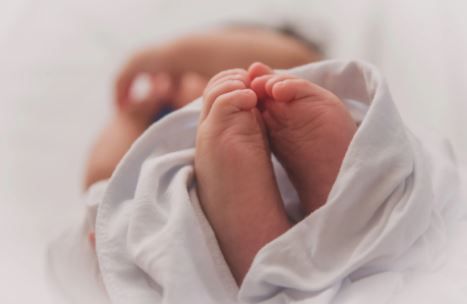
- Clinical Technology
- Adult Immunization
- Hepatology
- Pediatric Immunization
- Screening
- Psychiatry
- Allergy
- Women's Health
- Cardiology
- Pediatrics
- Dermatology
- Endocrinology
- Pain Management
- Gastroenterology
- Infectious Disease
- Obesity Medicine
- Rheumatology
- Nephrology
- Neurology
- Pulmonology
Nirsevimab Highly Effective in Preventing RSV-Related LRTD in Healthy Term Infants, Real-World Study Finds
Nirsevimab lowered the risk of RSV-related illness by over 87% and hospitalizations by 98% in a new study.
©unsplash/AdobeStock

In a large observational cohort study conducted during the 2023–2024 respiratory syncytial virus (RSV) season, nirsevimab demonstrated high effectiveness in protecting healthy term infants against RSV-related lower respiratory tract disease (LRTD), including hospitalizations, as well as in reducing overall health care utilization.1
The real-world analysis, conducted at Kaiser Permanente Northern California (KPNC) and published in Pediatrics, evaluated 31 900 healthy term infants born between April 2023 and April 2024. Of the total cohort, 15 647 infants (49.1%) received nirsevimab. Infants whose mothers received maternal RSV vaccination or who had underlying high-risk conditions were excluded from the analysis.1
Among infants who received nirsevimab, there were 35 episodes of RSV LRTD (6.10 per 1 000 person-years) compared with 462 episodes (58.51 per 1 000 person-years) in the nonimmunized group. The adjusted effectiveness of nirsevimab against RSV LRTD was 87.2% (95% CI, 81.7–91.1; P < .001).1
Effectiveness against hospitalized RSV LRTD was even higher at 98.0% (95% CI, 85.1–99.7; P < .001). Additionally, nirsevimab was associated with a 71.0% (95% CI, 65.3–75.8; P < .001) reduction in PCR-confirmed RSV infection of any severity.1
Infants with RSV LRTD who received nirsevimab had significantly fewer medical encounters than those who did not (adjusted mean difference −0.86; 95% CI, −1.36 to −0.36; P = .001). They also had lower odds of hospitalization (OR, 0.11; 95% CI, 0.01–0.85; P = .035) and lower odds of emergency department visits (OR, 0.30; 95% CI, 0.13–0.67; P = .003).1
The study population was diverse, with the majority of infants identifying as Hispanic (31.1%), White (30.4%), or Asian (23.2%). The mean age at immunization was 2.6 months, and most doses were administered in outpatient settings. RSV activity peaked in December, consistent with national trends.1
Sensitivity analyses supported the main findings, and there was no observed association between nirsevimab immunization and PCR-confirmed influenza, suggesting minimal residual confounding.1
The findings support the Advisory Committee on Immunization Practices recommendation for nirsevimab use in infants aged <8 months entering their first RSV season. Investigators concluded that routine nirsevimab administration may meaningfully reduce RSV-related morbidity and resource utilization in infants across diverse populations.1
"These results support BEYFORTUS as a groundbreaking advancement in infant RSV disease prevention," Ayman Chit, head of North America Medical, vaccines, Sanofi, said in a press release. "With more than 40 real-world evidence studies to date, this latest study further strengthens the well-established body of data that shows that BEYFORTUS provides protection against RSV disease to help safeguard the health of all babies, regardless of whether they are born before or during the RSV season."2
References:
- Hsiao A, Hansen J, Fireman B, et al. Effectiveness of nirsevimab against RSV and RSV-related events in infants. Pediatrics. Published online July 22, 2025. doi:10.1542/peds.2024-069510
- BEYFORTUS® reduced hospital and doctor visits for RSV disease in babies by 87%, according to largest US real-world study. News release. Sanofi. July 22, 2025. Accessed July 25, 2025. https://www.news.sanofi.us/2025-07-22-BEYFORTUS-R-reduced-hospital-and-doctor-visits-for-RSV-disease-in-babies-by-87-,-according-to-largest-US-real-world-study
2 Commerce Drive
Cranbury, NJ 08512
All rights reserved.